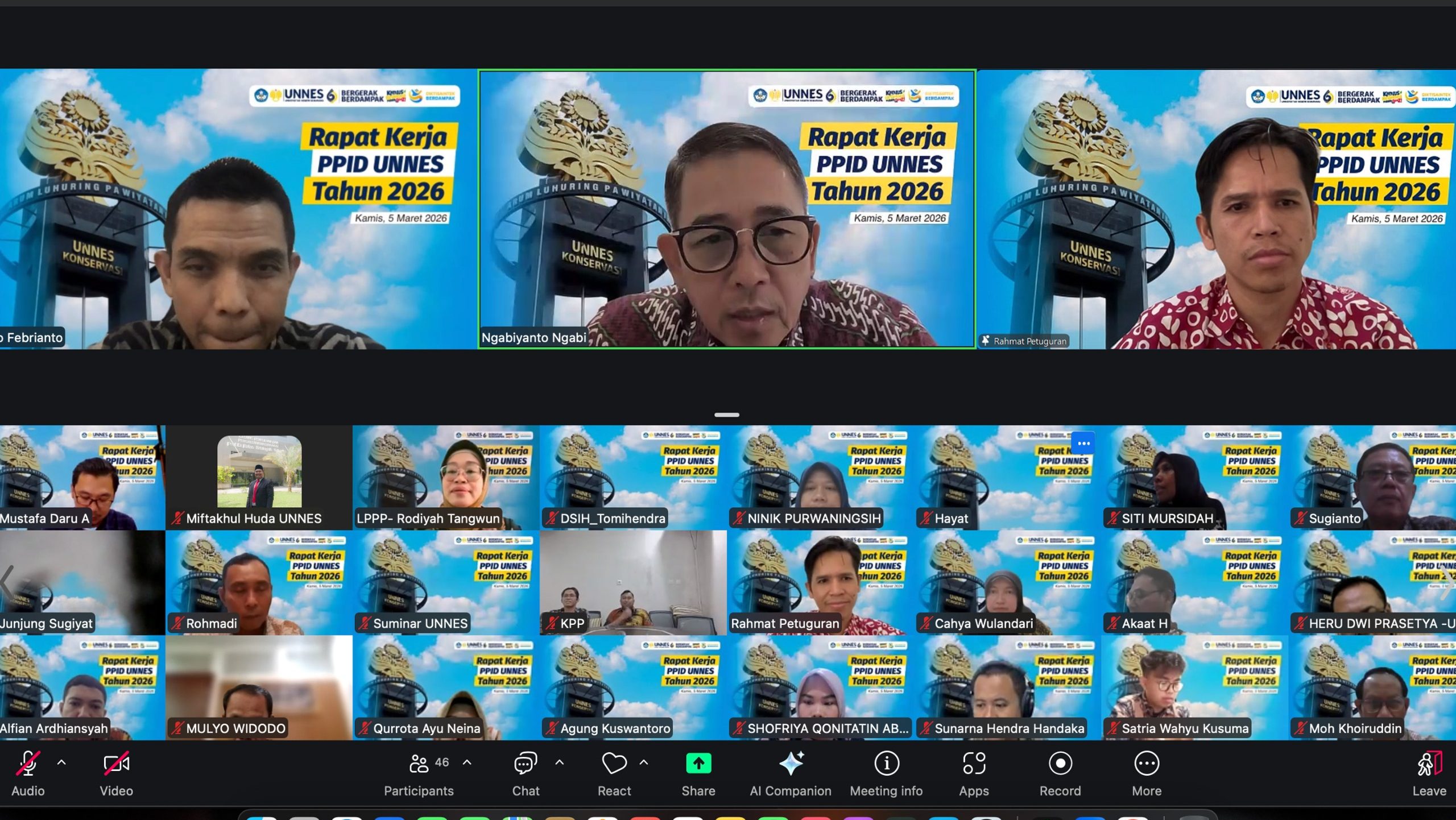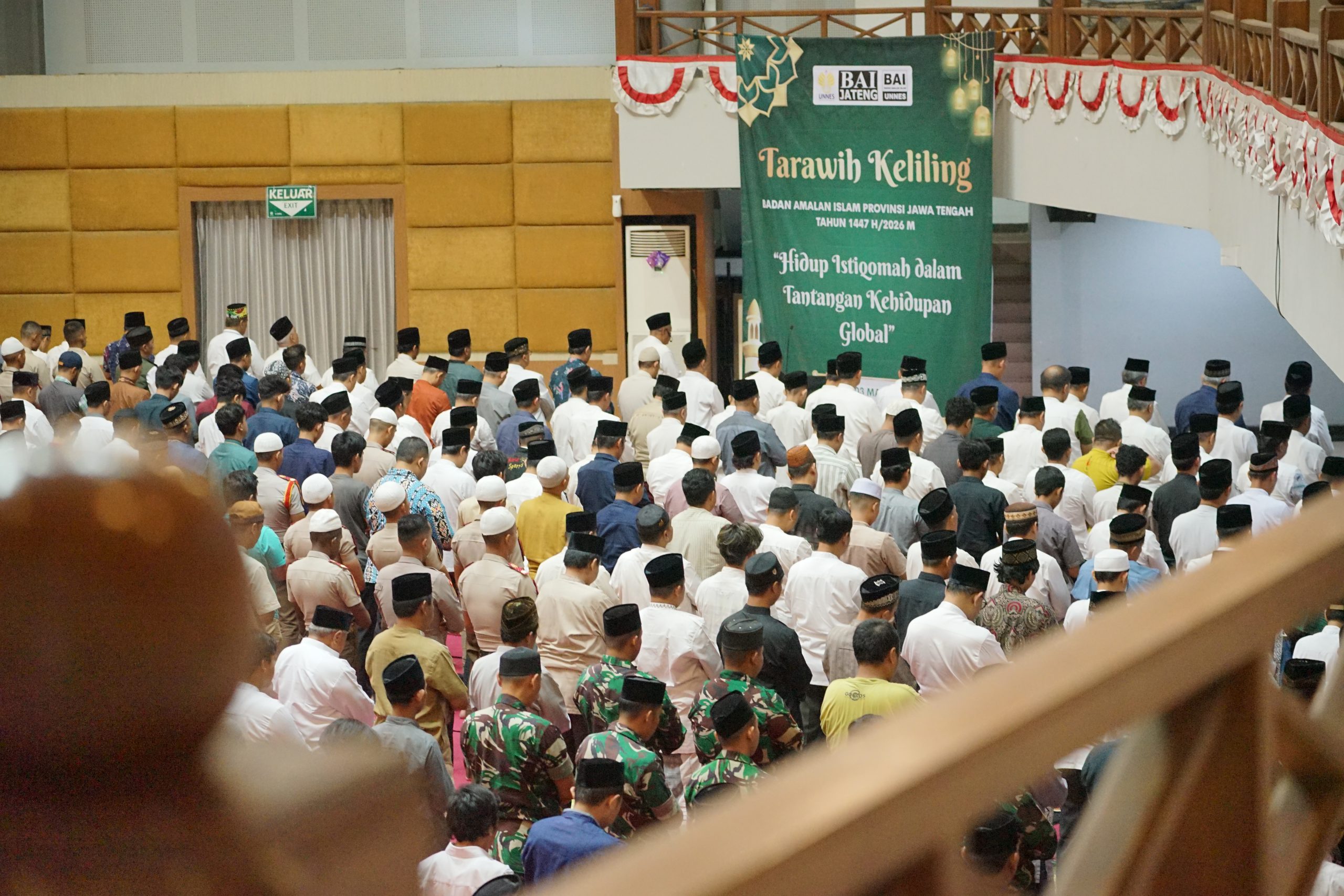Mulai tahun 2017, Universitas Negeri Semarang (UNNES) tidak menerima mahasiswa baru untuk Program Studi Pendidikan Guru Sekolah Dasar (PGSD) UPP Tegal. Untuk menyosialisasikan kebijakan tersebut, Rektor UNNES Prof Dr Fathur Rokhman MHum menggelar diskusi dengan seluruh mahasiswa PGSD UPP Tegal, Rabu (5/4). Diskusi dilaksanakan setelah Rektor mengisi kuliah umum.
Dalam diskusi yang digelar di Gedung Serba Guna (GSG) PGSD Tegal tersebut, Rektor menyampaikan sejumlah alasan yang melandasi kebijakan tersebut.
Pertama, kebijakan tersebut dilandasi semangat untuk meningkatkan kulitas guru pada masa depan. Profil guru masa depan telah diatur dalam Undang-Undang Nomor 14 Tahun 2005 tentang Guru dan Dosen, khususnya pasal 10 ayat (1).
Agar menghasilkan guru dengan profil ideal sperti diamanahkan Undang-Undang, UNNES sebagai Lembaga Pendidikan Tenaga Kependidikan (LPTK) harus memiliki fasilitas pendidikan yang baik dan terstandar.
Di lain sisi, kondisi riil saat ini menunjukkan bahwa fasilitas PGSD Tegal belum terpenuhi. Dengan luas tanah yang terbatas, pengembangan fasilitas yang terstandar di kampus tersebut sulit terpenuhi.
Kedua, paralel dengan landasan pertama, Permenristekdikti Nomor 1 Tahun 2017 tentang Program Studi di Luar Kampus Utama (PSDKU) Pasal 2 ayat (2) mengatur bahwa penutupan PSDKU bertujuan melindungi masyarakat dari kerugian akibat memperoleh layanan tinggi, penelitian, dan pengabdian kepada masyarakat yang tidak bermutu.
Melihat kondisi riil di lapangan yang menunjukkan fasilitas PGSD Tegal belum sesuai dengan profil lembaga pendidikan yang ideal masa depan, pendidikan PGSD Unnes akan difokuskan di PGSD Kampus Ngaliyan. Sebab, di kampus Ngaliyan fasilitas yang tersedia jauh lebih baik, antara lain ditandai dengan tersedianya asrama dan ruang perkuliahan yang representatif.
Rektor menjelaskan bahwa UNNES tidak menutup Prodi PGSD, melainkan mengurangi kuota penerimaan. Sebab riilnya, dalam penerimaan tahun 2017 program studi tersebut tetap dibuka. Hanya saja, mahasiswa baru 2017 akan menempuh pendidikan di kampus PGSD Ngaliyan. Sebagai konskuensi atas kebijakan tersebut, Rektor menjamin bahwa layanan pendidikan kepada mahasiswa PGSD Tegal tetap akan diberikan sebagaimana biasanya hingga mahasiswa lulus.
Rektor menyampaikan, ke depan bangsa Indonesia memerlukan guru-guru berkualitas tinggi. Guru dinilai sebagai variabel yang sangat penting untuk memajukan pendidikan nasional. Terdapat empat kompetensi yang harus dimiliki guru sebagaimana diatur Undang-undang. Empat kompetensi tersebut hanya dapat diraih oleh calon guru jika LPTK memiliki sarana dan prasarana pendidikan yang baik.
Merespon amanat undang-undang ini, sebelum UNNES telah melahirkan berbagai kebijakan revitalisasi LPTK. Pada prinsipnya, revitalisasi LPTK dilakukan untuk memperkuat peran sosial, kultural, dan kebangsaan LPTK dalam memajukan pendidikan nasional. Salah satunya, meningkatkan kualitas lulusan.
“Jadi, tujuan utamanya adalah kualitas. UNNES ingin melahirkan guru dengan kualitas terbaik. Sebab guru berkualitas baik adalah variabel yang sangat penting untuk memajukan pendidikan nasional. Dan pendidikan nasional yang berkualitas adalah dambaan seluruh bangsa Indonesia,” katanya.



